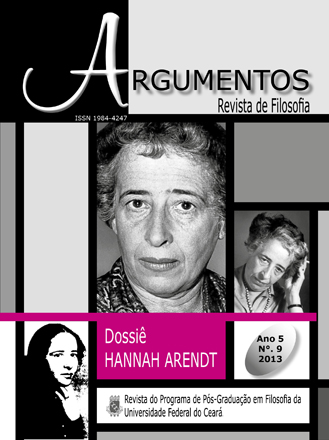The process of formation of proposals and to the possibility of dúvida no About a Certainty of Wittgenstein
Keywords:
Foundationalism. Doubt. Knowledge. Certainty.Abstract
In the book On Certainty, Wittgenstein discusses central epistemological questions, such as the nature and the scope of knowledge, the distinction between knowledge and certainty, the problem of skepticism, and the dynamic of proposition formation. The author distinguishes between propositions that either count as a rule or as empirical. It is suggested that knowledge is different from certainty; the latter serve as ground for knowledge and certainties are expressed by means of hinge propositions. This type of proposition works as foundation for the formulation of empirical propositions. Hinge propositions are exempt from doubt since they are supposed to be assented on certainties. In order to doubt on such propositions, one needs to indicate in what conditions and contexts a doubt can be raised, otherwise the doubt is not allowed. However, hinge propositions are not absolutely doubtless because they can turn into empirical and accordingly, undergo new questionings. This paper aims to understand the formation and the distinction between empirical and hinge propositions and how they become accepted by the linguistic community.Downloads
Published
Issue
Section
License
Argumentos magazine is licensed under an International Creative Commons Attribution License.
The Magazine uses CC BY inclusion
1) The authors retain the copyright granted to the magazine or the right to initial publication, with the work regularly licensed under the Creative Commons Attribution, which allows the sharing of the work with acknowledgment of authorship and initial publication in this magazine.
2) The authors are authorized to contract additional applicable contracts, for non-exclusive distribution of the version of the work published in this journal (for example, publication in the institutional repository or as a chapter of the book), recognition of authorship and initial publication in this journal.
3) Authors are authorized and encourage to publish and distribute their work online (for example, in institutional repositories or on their personal pages) at any time before or during the editorial process, as they can generate productive changes, as well as increase the impact and reference of published work.




.jpg)










._._3.png)
1.jpg)
._._._.png)
